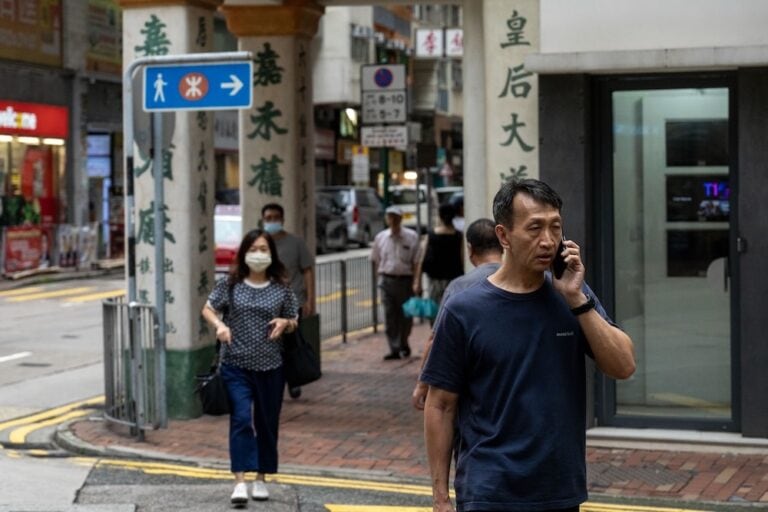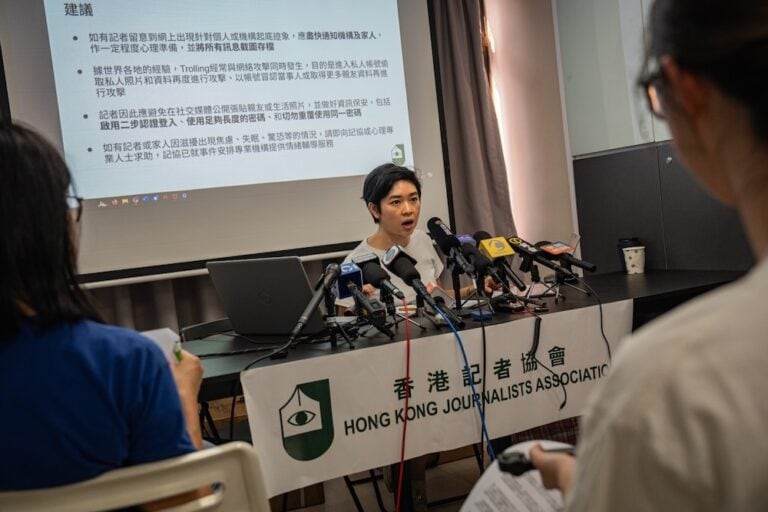The IFJ and its affiliate, the HKJA, are deeply concerned that press freedom in Hong Kong has been jeopardised by the sacking of Li Wei-Ling, an outspoken radio talk-show host with Commercial Radio of Hong Kong.
The International Federation of Journalists and its affiliate, the Hong Kong Journalists Association, are deeply concerned that press freedom in Hong Kong has been jeopardised by the sacking of Li Wei-Ling, an outspoken radio talk-show host with Commercial Radio of Hong Kong.
On February 12, 2014, Li Wei-Ling was informed by email that her contract was terminated with immediate effect. Commercial Radio gave no explanation for her termination. Li was sacked three months after she was removed from her popular morning show and assigned to a less prominent evening show.
Li has openly criticised certain Hong Kong government policies, as well as the performance of the Chief Executive, Leung Chun-Ying. On February 13, Li disclosed in a press conference that she had been told by an official that Leung had criticised her several times during his morning briefings with government officials. She reported the official as saying: “She was the person Leung hated the most in Hong Kong.”
Li also said one of Leung’s aides told her “to watch out for her job” because of her acute criticism of the Hong Kong government. Li said she had invited government officials to be interviewed on her popular morning show, but they refused.
“With my clear judgment, I believe Leung Chun-Ying is suppressing press freedom and Commercial Radio of Hong Kong has bowed to government pressure in order to renew its licence, which is due in 2016. I also believe the central authority of China has definitely played a role in this incident, although I do not have any evidence to prove it,” Li said.
Chief Executive Leung Chun-Ying said he had never talked with anyone about Li’s employment situation and that he and his government placed great importance on press freedom. However, Leung did not answer any questions from the media.
The IFJ Asia-Pacific Office said: “The Chief Executive of Hong Kong and the Executive Council have the right to determine the grant of a broadcasting licence. We urge the Executive Council of Hong Kong to establish a transparent system for licence renewals, and to end the chaotic situation in which renewals are decided by a handful of people.
“Article 27 of the Basic Law, which functions as the constitution of Hong Kong, says that Hong Kong enjoys press freedom. As well, Section 16 of the Hong Kong Bill of Rights Ordinance says that Hong Kong enjoys freedom of opinion. The Chief Executive has a duty to prove that freedom of opinion has been upheld, rather than merely paying lip service to the concept.”
The IFJ Asia-Pacific asks the Hong Kong Legislative Council’s Panel on Information Technology and Broadcasting to investigate Li’s case. We demand that government officials, including the Chief Executive, as well as the Chairperson of Commercial Radio of Hong Kong, give further explanations.
We also urge the United Nations Human Rights Council to demand explanations from China and the Hong Kong government about the recent series of incidents in which press freedom has been suppressed in the Mainland and Hong Kong. China and Hong Kong are signatories to the International Covenant on Civil and Political Rights.


